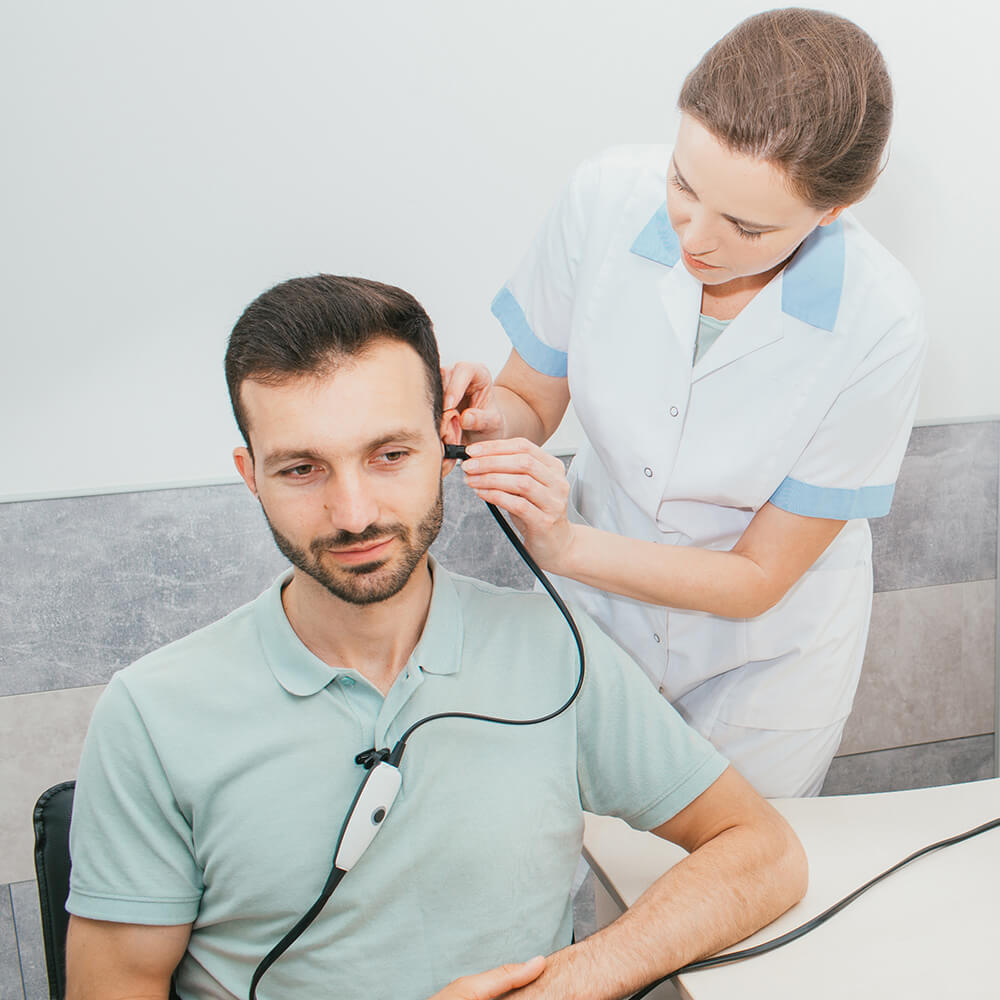Tinnitus Management

Tinnitus Management
Learn how to take control of your tinnitus.
While many would say they experience tinnitus, a smaller but significant percentage of those with tinnitus truly suffer from it. Tinnitus is not a disease. Tinnitus does not cause hearing loss, but tinnitus can be associated with hearing loss. One can also have tinnitus even if they have normal hearing. Tinnitus has been defined by the American Tinnitus Association as the “perception of sound when no actual external noise is present. While it is commonly referred to as “ringing in the ears,” tinnitus can manifest many different perceptions of sound, including buzzing, hissing, whistling, swooshing, and clicking. In some rare cases, tinnitus patients report hearing music. Tinnitus can be both an acute (temporary) condition and a chronic (ongoing) health malady.”
Sensorineural hearing loss is often associated with tinnitus. The incidence of tinnitus rises with age. Tinnitus has also been associated with metabolic disorders such as diabetes, autoimmune disorders, blood vessel disorders, head and neck trauma, and ototoxic medications. Additionally, it has been associated with traumatic brain injury and other medical conditions.
Managing Tinnitus
There is no universal cure for tinnitus, but management can help make it less of a distraction. Because tinnitus may be a side effect of an underlying condition, identifying the problem may lead to a medical or surgical solution. The cure rates for pulsatile tinnitus are relatively high once your specialist identifies the problem.
While there is no known cure for tinnitus unless the underlying cause can be identified, audiologists have developed some outstanding tinnitus treatment programs and methods in recent years to help patients with chronic tinnitus.
Tinnitus Treatment
Other Treatment Options

Support
You Aren’t Alone with Your Tinnitus
You aren’t alone. We understand how isolating tinnitus can be and we can help you take the next step in your tinnitus management. A thorough evaluation is the first step so our specialists can determine if your tinnitus has a physical cause.
In some instances, tinnitus may be cured. But for most, the treatment option is based on managing the tinnitus. We will help you find the resources, additional specialists, devices and tools you need to manage your tinnitus symptoms successfully. You aren’t alone. Call us today.
Tinnitus Evaluations
Tinnitus is often described as a ringing in the ears, but can also sound like hissing, buzzing, roaring, sizzling, clicking or other noise. Tinnitus can manifest as an acute symptom lasting just a few days or a chronic or recurring symptom lasting weeks, months or years.
Tinnitus is a symptom of a wide range of health conditions, and it can occasionally point to a more serious problem that needs professional medical attention. That is why trying to identify a cause is essential, even though it may not be possible.
During a tinnitus evaluation, an audiologist will typically administer
- An in-depth review of your medical history
- A complete physical examination of your auditory system
- A pure tone audiometry test
- Speech reception and word recognition tests
- An otoacoustic emissions test
- Additional tests, studies and evaluations

What to Expect During an Evaluation
Don’t Let Hearing Loss Disconnect You from the World
- Identify the underlying cause of your tinnitus symptoms
- Determine if your tinnitus is subjective or objective
- Evaluate how your tinnitus is affecting your ability to understand speech
- Our team of audiologists are equipped with many tools and strategies to help patients with tinnitus.
